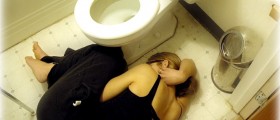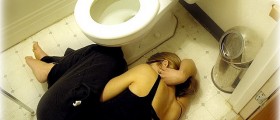
Causes
Irritable Bowel Syndrome is a common cause of diarrhea. The condition can lead to pain in the abdomen as well as constipation, diarrhea, or both. Normally, IBS develops after some kind of infection. Inflammatory bowel diseases occur when the body’s own immune system begins to attack certain areas of our digestive system. The most commonly seen forms of bowel disease are ulcerative colitis and Crohn’s Disease. Infections that cause diarrhea often occur in those living or travelling to developing or tropical nations. Usually the infections occur due to the consumption of contaminated water or food.
Other causes of diarrhea include endocrine disorders - such as hyperthyroidism and diabetes - and food allergies. Often, those with celiac disease are vulnerable to diarrhea and weight loss. Some medicines and supplements can cause diarrhea. If you feel this is the case, make sure to consult your doctor or another medical professional.
Examination
If you do experience watery or loose stools for more than three weeks, it might be advisable to consult a doctor. However, if you experience bloody diarrhea, fever, dehydration or weight loss in addition to this, then you should consult a medical professional as soon as possible. When you are being examined, you will most likely be asked for either a blood, stool or urine sample. This will help identify the cause of the diarrhea.
Treatment
Treatment could be as straight forward as eliminating intake of certain products. In those who are lactose intolerant, for example, this would include products containing lactose. Laxative and antacid medications can also cause diarrhea. Some treatments focus on firming the stool. This can be achieved through a high fiber diet or through fiber supplements.
Antidiarrhea medications like loperamide can also be useful. For severe diarrhea, octreotide might be prescribed. Chronic diarrhea can lead to serious problems if not treated, so be sure to take on board as much liquid as possible, as this can help to avoid dehydration and malnutrition. In some severe cases, intravenous drips might be used to increase fluid intake.



_f_280x120.jpg)













Your thoughts on this
Loading...